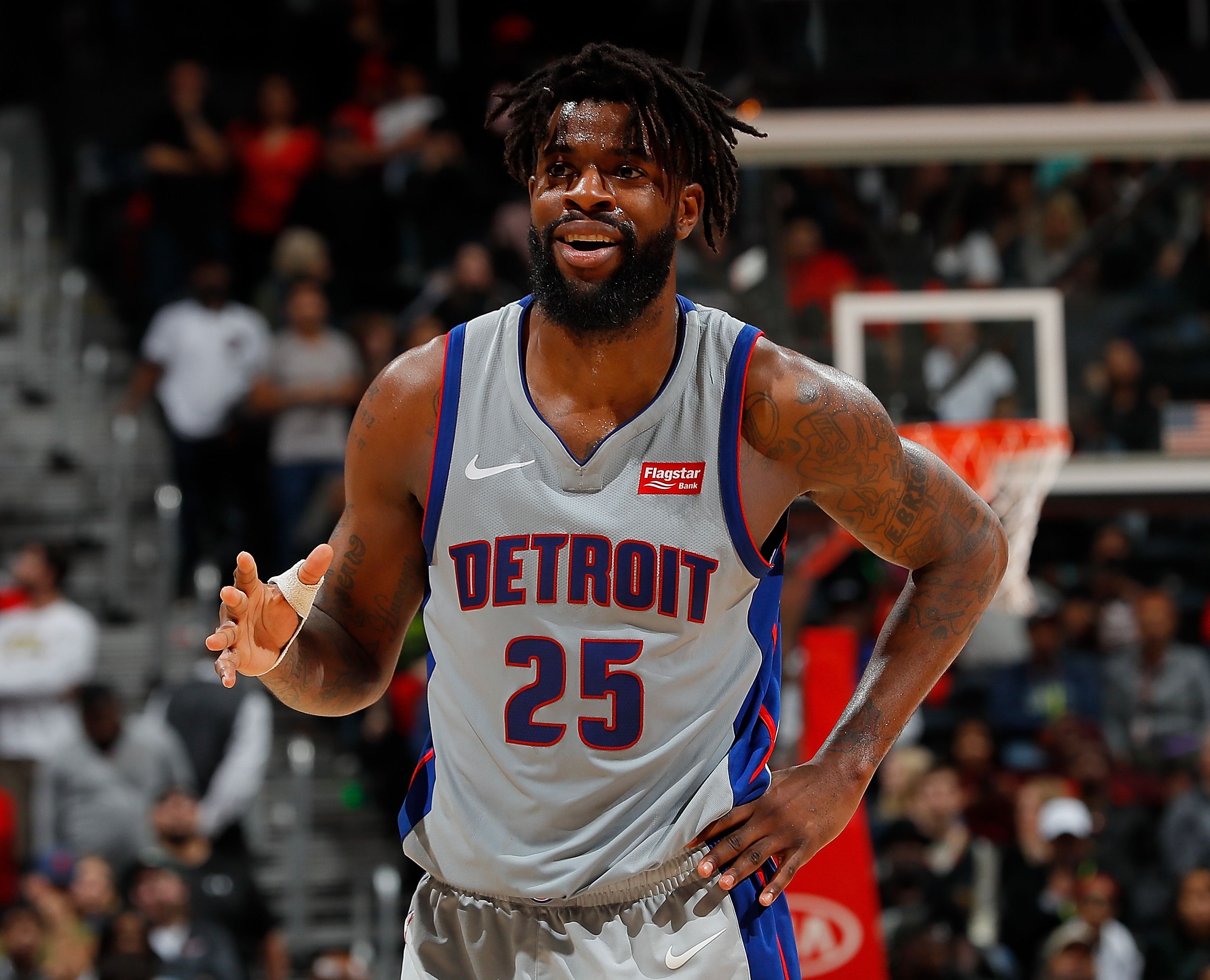
NBA players using their voices and platforms to bring awareness to a cause they believe in has become a growing movement. Detroit Pistons shooting guard Reggie Bullock is the latest to join the trend, with his support for the LGBTQ community, hosting a LGBTQ Pride Night at Little Caesars Arena.
“One of the reasons I wanted to get into it was obviously because of my sister,” said Bullock in a Pistons video spotlight. “Just the impact that she had on my life and the happiness that she had with being herself always stuck with me, even she left.”
Mia Henderson (born Kevin Long) was Bullock’s sister. She was murdered in Baltimore in 2014, stabbed to death and left in an alley. Bullock has said she was so badly beaten that police could not initially identify her body. A suspect was charged with her death in 2015 but was acquitted of all charges in 2017.
Bullock, who recently met with representatives from GLAAD (formerly the Gay & Lesbian Alliance Against Defamation) and Athlete Ally, hosted a Pride Night at Detroit’s Little Caesars Arena to proclaim his support for the LGBTQ community and to share his sister’s story.
“Obviously, it was tragic when it happened,” said Bullock. “I really didn’t know too much about the deaths and the things that happen to people in this (LGBTQ) community. I feel like the people that’s surrounding me and helping me get my story out there about sister is great.”
“What happened to Reggie Bullock’s sister Mia Henderson was a tragedy and shouldn’t happen to anyone,” adds Nick Adams, GLAAD’s director of transgender media and representation. “But the fact that Reggie Bullock wants to use this as an opportunity to talk about his support for LGBT people, and especially for transgender women, is really incredible.”
During LGBTQ Pride Night against the Chicago Bulls last month, Bullock met with dozens of members of the LGBTQ community to discuss his support for them and to tell his sister’s story. In today’s climate, it is not easy for professional athletes to speak up and take a stand for what he is fighting for. But Bullock was welcomed with open arms and has evolved into a leader in the LGBTQ community.
“First, I’m going to stand up for what I want to stand up for,” Bullock said. “And then the second thing is, my sibling was murdered, and she was a part of that (LGBTQ) community, so obviously I’m going to stand up for it.”
“It’s really about what you believe, what you stand for. I think if my sister wasn’t a part of that (LGBTQ) community and nothing like this totally ever happened, I still feel like I would probably be a leader to be able to stand up for that community.”
Bullock has previously spoken out about attacks on the LGBTQ community, shutting down transphobic jokes in the locker room and in everyday life. He clearly has deep love and respect for his slain sister and the community she represented. Bullock even has “LGBTQ” tatted on his left leg, above a memorial of his sister.
“A lot of people joke and do all these types of things about those type of people (LBGTQ),” Bullock said. “But me, it touches me. Never will I laugh, never will I do any type of those things, about people who go through those different ways in life.”
